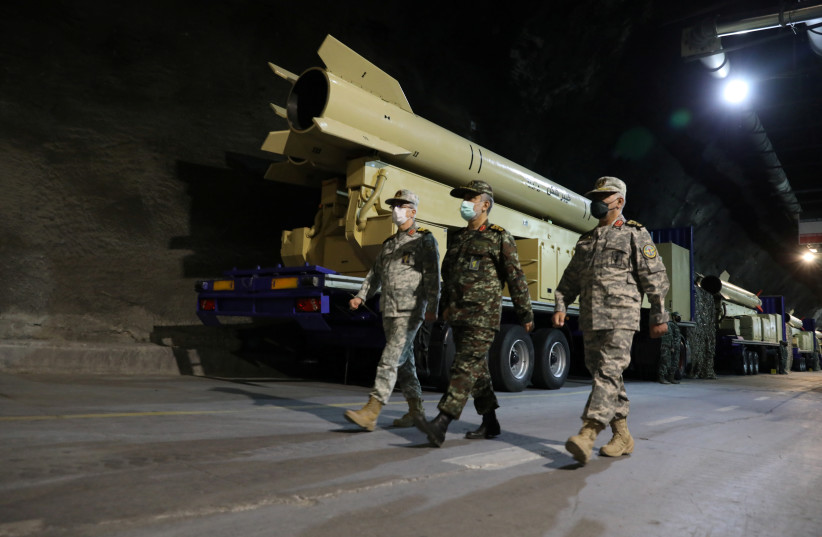A group of militants planning to attack nuclear facilities in Isfahan was arrested about a month and a half ago, Islamic Revolutionary Guard Corps (IRGC) Ground Force commander Sardar Mohammad Pakpour claimed on Monday in an interview with the Mehr News Agency. The commander may have been referring to a case first announced in July.
Pakpour was discussing recent missile and drone attacks by the IRGC on Kurdish groups in Iraqi Kurdistan, claiming "separatist elements" had established bases and training centers in northern Iraq.
The IRGC commander complained that despite multiple requests by Iran, Iraqi authorities had not acted against the Kurdish groups in northeastern Iraq.
"According to some information that we have, it seems that there is no will to deal with these terrorist elements among the regional authorities," said Pakpour to Mehr.
"About a month and a half ago, the Intelligence Ministry identified and arrested the terrorist group that planned to sabotage Isfahan's nuclear facilities," added Pakpour. "In their confessions, it is stated that the Zionist regime is present in the bases of terrorist groups located in the northern region of Iraq. They select people and take them to Israel and after providing the necessary training, they send trained teams to carry out terrorist activities inside Iran. Therefore, these bases can also be considered the bases of the Zionist regime, because their interest goes to the Zionist regime."

The IRGC commander repeated claims that Kurdish groups were driving unrest in Iran, stating that the IRGC attacked the groups because of this.
According to Pakpour, the IRGC fired missiles and drones as far as 130 kilometers into Iraq.
Past claims of Israeli attempts to attack Isfahan sites
In July, the Iranian Noor News agency claimed that Mossad agents who the Iranian Intelligence Ministry had alleged earlier had been caught in the country had been trying to blow up a "sensitive site" in Isfahan in central Iran.
The Iranian Intelligence Ministry announced in July that it had caught a network of Mossad agents who were in contact with other agents in a "neighboring country" and had entered Iran from the Kurdistan Region of Iraq. The ministry claimed that the network was planning to carry out "unprecedented acts of sabotage and terrorist operations by using the most up-to-date operational and communication equipment and the most powerful explosives."
It is unclear if this is the case Pakpour was referring to.
Iran has repeatedly claimed that Israel's Mossad is operating in Iraqi Kurdistan.
In March, the Islamic Revolutionary Guards Corps (IRGC) fired 12 missiles toward a home in Erbil in the Kurdistan Region, saying it was a response to the "recent crimes of the fake Zionist regime.” The IRGC additionally claimed that the targeted structure was called "the Strategic Center of Conspiracy and Evil of the Zionists." Reports by Iranian and pro-Iranian media indicated that the missile strike was carried out in response to an alleged Israeli drone attack on an IRGC drone base in Mahidasht, Iran.
While the reports did not state which site was being targeted, the Isfahan Nuclear Technology Center, located in the area, is one of the country's largest nuclear facilities, according to the Nuclear Threat Initiative (NTI).
Last month, some of the surveillance cameras used by the International Atomic Energy Agency (IAEA) were removed from the Isfahan site. Additionally, the IAEA reported last month that 90% of Iran's uranium enriched to 60% fissile purity had been moved to Isfahan. In January, the IAEA reported that Iran had informed it that it would move the production of centrifuge parts to Isfahan.
Last year, Iran announced that it had begun producing enriched uranium metal, a material that could be used to create the core of a nuclear weapon, at the Isfahan site.
